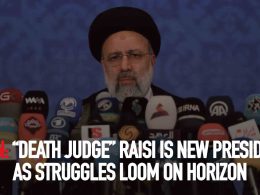By Sam Casey
In 2019 the Sudanese masses rose up in a mass revolutionary movement, sweeping away the President of nearly 30 years Omar al-Bashir, whose rule was marked by conflict, oppression and economic crisis. This uprising, led in large part by women and young people, inspired the world and posed for a time the question of a society ruled by the masses themselves – rather than another regime of elites.
Eruption of counterrevolutionary war
Today, however, Sudan has fallen into the depths of a brutal civil war in which the working class and poor masses of the country are the victims. A horrific humanitarian crisis has developed – with ten million people displaced, thousands killed and an emerging famine threatening the lives of millions more. More than 3.6 million children are facing acute malnourishment and the country’s healthcare system has collapsed.
The current crisis has its roots in how the revolution of 2019 ended. The political vacuum created by al-Bashir’s downfall was filled through a counterrevolutionary coup in 2021, when an uneasy alliance between the Sudanese army and the Rapid Support Forces (RSF) – a brutal paramilitary militia – pushed aside the puppet transitional government.
After that, the leaders of the army and the RSF, Burhan and Hemedti, jostled for control, eventually erupting in open conflict last year. In reality, this is a conflict between opposing gangster militias that enrich themselves from the suffering of the masses while leaning on different imperialist powers to shore up their positions.
Imperialism’s bloody hand
The RSF has served as the frontline forces of reaction, massacring protests during the revolution and engaging in a series of slaughters throughout Darfur – where it has been reported that villagers are being abducted and forced into slavery. The United Arab Emirates (UAE) is linked with the RSF, who it provides with funding as well as logistics and military equipment. In return, the paramilitary secures access to gold and other natural resources there, which enrich the UAE’s billionaire elite.
Western imperialism supported the counterrevolution, desperate to put a lid on the revolution of 2019 to maintain a firm grip on Sudan. The US and Britain have happily supported mass murderers, hoping to use them to push back against the influence of their geopolitical rivals like Russia (which has forged closer ties with military leaders across the Sahel). From the beginning of the Sudanese revolution, all regional powers and imperialist forces were aligned against the Sudanese masses in their struggle for freedom and an end to poverty and rule by gangsters, fearing that a people’s revolution could spread to threaten their own positions.
Solidarity with the Sudanese people
It is true that they have much to fear. The revolution of 2019 showed the power that a united movement of working-class and oppressed people can have, and it is only this force that can bring an end to this horrifying violence. The tragedy is that this movement did not result in the working class and poor taking power and seizing the wealth and resources of Sudan, as a step towards building a democratic socialist Sudan, with the rights of all minorities guaranteed.
Working-class and young people around the world have protested in solidarity with the Sudanese masses, linking their struggle to that of Palestinian people and all those facing state violence backed by imperialism.












